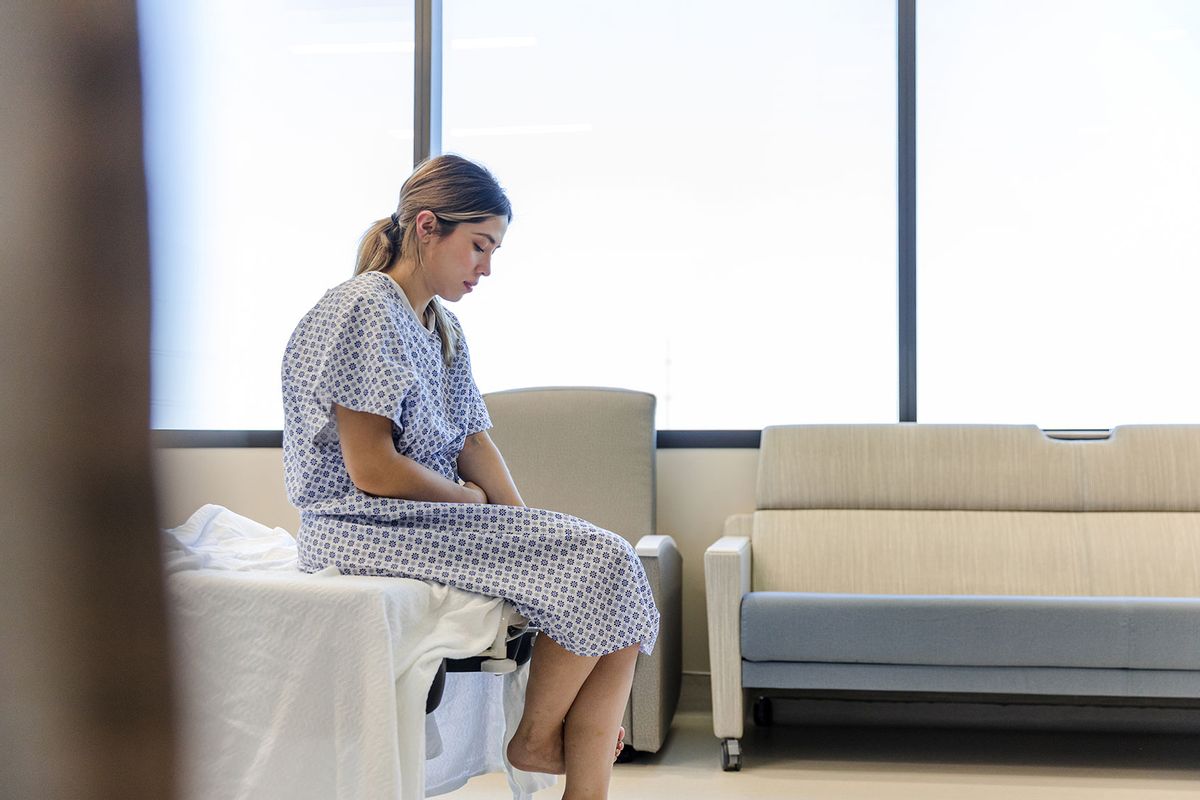After being diagnosed with breast cancer at 37 years old, I was relieved to learn I wouldn't need chemotherapy. Instead, I was prescribed a ten-year, targeted hormone therapy program designed to kill the estrogen in my body, push me into menopause, and lower my risk of cancer recurrence.
In one sense, this was a miracle. I was alive. But in another, it was a nightmare. Just one week into the hormone treatment, I was a mood-swinging, hot flashing, insomniac. Perhaps the worst menopausal side effect was extreme vaginal atrophy — aka thinning, drying and inflammation of the vaginal walls — which made sexual intercourse feel akin to sitting on a saguaro cactus.
We are being forced to choose between improved sexual health or a lower chance of getting cancer.
Unfortunately, I am one of many women who have limited options when it comes to treating vaginal atrophy. While 50% of postmenopausal women experience similar symptoms, not everyone feels comfortable using the estrogen-filled creams, rings and tablets frequently prescribed by doctors. At present, the research is confusing about estrogen-enhanced products and the added risk of cancer for postmenopausal cancer survivors. Some studies have shown estrogen-enhanced products to be safe. However, many survivors — like myself — are wary of using estrogen-based products for fear of recurrence. While other non-estrogen vaginal rejuvenation treatments are available, most of them are expensive and risky. Women who have the financial resources are beginning to invest in these out-of-pocket procedures, even though the efficacy of these new treatments is still unknown. Full disclosure: I had a pricy vagina lasering done, and it sort of helped.
Until there is concrete research and medical advice widely available on the safety of estrogen-enhanced products, many women will be left to calculate their own risk. Right now, we feel as though we are being forced to choose between improved sexual health or a lower chance of getting cancer. In terms of medical research, there is a gender gap here — as there is in heart disease studies and exercise science studies, which historically have excluded women from clinical trials. In my case, there simply aren't enough studies on the topic to definitively determine the best course of action regarding estrogen-enhanced products to treat my condition.
Women's health issues — particularly those affecting postmenopausal women — continue to be a low priority for medical research.
This raises the question: why isn't there a safe, easy and affordable solution for vaginal atrophy? There has been a treatment for erectile dysfunction since 1998, when the FDA first approved Viagra; and erectile dysfunction is essentially the equivalent condition for men. Currently, most major insurance carriers — including Medicare — cover the cost of Viagra or its generic form, making the drug widely available.
The study of Women's Health Across the Nation found that BIPOC women experience menopause and perimenopause earlier than white women and tend to have more intense symptoms, including vaginal atrophy. But their stories aren't being told. Let's face it, women's health issues — particularly those affecting postmenopausal women — continue to be a low priority for medical research. This is a gender equality issue as much as a spotlight on the fact that the vagina is still a second-class organ. After #MeToo, you'd think something would change, yet the world still seems to revolve around the phallus.
Want more health and science stories in your inbox? Subscribe to Salon's weekly newsletter The Vulgar Scientist.
I was not expecting to be hurtled into menopause at 37 years old. To be honest, I'm ashamed by how little I knew about it. I don't remember my mother going through menopause. The truth is a lot of women don't feel comfortable discussing the physical, emotional, mental, and sexual symptoms they experience with anyone — including their doctors. Many women are embarrassed to be thought of as old and over-the-hill, given the unrealistic beauty standards of our youth obsessed culture. The stigma against discussing menopause does seem to be decreasing slightly, as public figures — like Naomi Watts, Stacy London, and even Michelle Obama— have spoken openly about going through menopause.
None of the vaginal atrophy treatments, except ones that may or may not cause cancer, are covered by insurance. In 2015, a drug touted as the "New Female Viagra" came on the market, after being twice rejected by the FDA. This medication claims to target women's brain chemistry to increase a female's sexual desire. But these non-hormonal medications do not treat the symptoms of vaginal atrophy directly, and they are only approved for premenopausal women.
I knew breast cancer was going to impact my boobs — and it did. But thanks to modern science, my breasts now look and feel like they're 18 again. Unfortunately, the same can't be said about my vagina. It's unacceptable to me that the consequence of treating my life-threatening disease should also be my sexual health.
Breast cancer isn't something every woman will face — but menopause is. By 2030, more than 47 million women are expected to enter menopause each year. (It's unclear if that statistic accounts for the millions of cancer survivors worldwide who are pushed into early menopause during chemotherapy and/or hormone treatments.) We live in a society where there is a "pill for every ill." If two scientists were able to figure out that hypertension medication brought a rush of blood to the penis — and caused an erection — I believe we can find a way to safely and easily treat an aging (but still sexy) vagina.



Shares